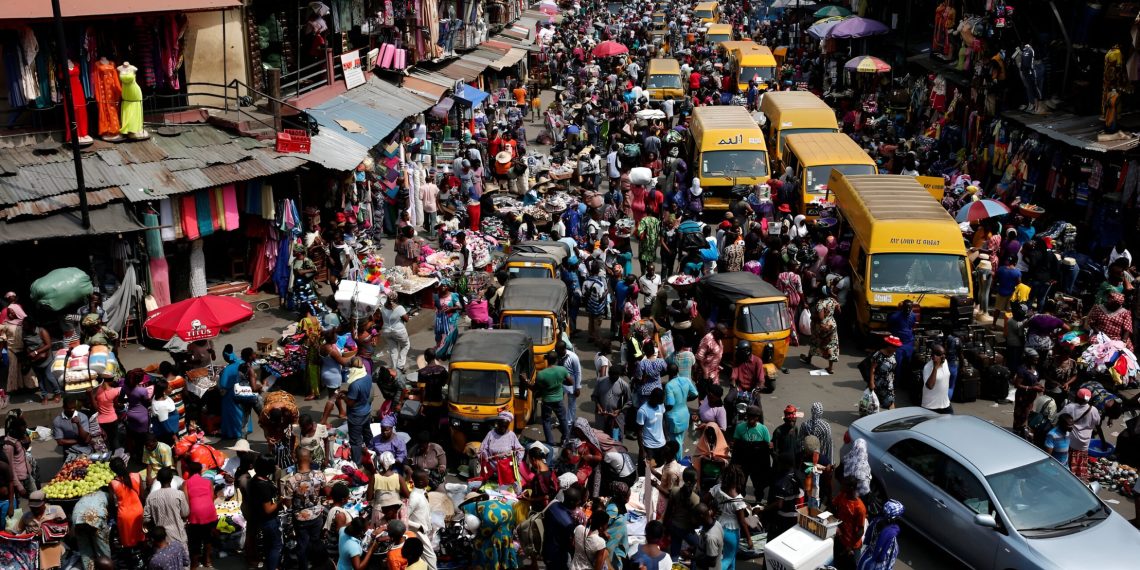Nigeria has been spotlighted in the recently released United Nations (UN) World Health Statistics report for 2025, earning an unfortunate distinction as the country with the world’s lowest life expectancy. According to the report, Nigeria’s average life expectancy now stands at just 54.9 years—well below both the African continental average and a far cry from the global benchmark of 73.7 years.
Breaking down the data from the UN, it is revealed that Nigerian men can expect to live an average of 54.3 years, while women fare only slightly better at 54.9 years. By comparison, nearby Chad (55.2 years) and the Central African Republic (57.7 years) offer slightly higher, yet still troubling, life expectancies.
These numbers highlight a significant and persistent gap, not just between Nigeria and developed countries, but also with many neighboring African states. Health experts say this gap underscores deeper systemic issues, including uneven access to quality healthcare, high prevalence of communicable diseases, and longstanding social and economic disparities.
What Does Life Expectancy Represent—and Why Does it Matter?
Life expectancy at birth is widely recognized as a critical measure of a nation’s general health and prosperity, as it reflects the average number of years a person is expected to live based on present mortality patterns. It takes into account factors such as childhood survival rates, healthcare access, nutrition, and exposure to conflict and disease.
In nations where healthcare systems are robust, nutrition is adequate, and public health interventions are well-funded, life expectancy figures tend to be higher. For context, countries like Japan and Switzerland routinely record life expectancies over 80 years, while Africa’s overall average hovers around 64 years—putting Nigeria’s current position into stark relief.
A lagging life expectancy figure, public health analysts emphasize, offers more than just a statistical insight. It rings alarm bells about deeper developmental issues, impacting everything from workforce productivity to national stability.
Six Years, Little Progress: Why is Nigeria Falling Behind?
To put these findings into perspective, a previous UN report from six years ago placed Nigeria’s average lifespan at roughly 55 years, then making it the third lowest globally. Since then, there has been virtually no recorded progress. Other African nations have made steady improvements—narrowing their health gaps with targeted investments and reforms—while Nigeria’s stagnation highlights a worrying trend of inaction.
Further compounding the situation are Nigeria’s demographic pressures. Official UN population figures indicate a remarkable surge—from 54.7 million people in 1969 to 201 million by 2019. Notably, almost half of today’s Nigerians are under the age of 15, and nearly a third fall in the 10 to 24-year age bracket. This youthful population structure should, in theory, offer a demographic dividend; instead, it intensifies strain on limited health, education, and employment resources.
The reasons behind Nigeria’s low life expectancy are complex and multi-layered. Multiple local and international analysts pinpoint persistent difficulties such as:
- High levels of infectious diseases like malaria, HIV/AIDS, and tuberculosis
- Lack of universal access to healthcare, especially in rural areas
- Shortages of medical professionals and equipment
- Frequent strikes and industrial actions in the health sector, leaving millions without essential services
- Ongoing challenges in maternal and child health
- Socio-economic factors including poverty, poor sanitation, and lack of clean water
Global Inequality in Health: Nigeria’s Declining Ranking
As the world makes progress in health outcomes—driven by medical innovation, digital technology, and expanded public health programs—Nigeria is reportedly falling further behind. Global health advocates, including the World Health Organization, warn that stagnation in countries like Nigeria contributes to widening disparities not only within Africa but also across the globe.
The UN’s call for urgent investment is louder than ever. “Without strategic action to address the root causes of poor health in Nigeria—ranging from infrastructure gaps to economic inequality—the country’s vulnerability will only increase,” said Dr. Amina Yusuf, a Lagos-based public health specialist. “It’s not just a health crisis. This is a social and economic warning sign.”
Other experts have echoed this view. Dr. Kwame Mensah, a health economist based in Accra, argues that no policy aimed at boosting Nigeria’s long-term development can succeed without prioritizing public health.
How Can Nigeria Reverse the Trend?
The solutions to Nigeria’s low life expectancy are complex, but several local and international health bodies advise a strategic, multi-pronged approach, including:
- Boosting funding for primary healthcare and ensuring facilities are equally distributed across urban and rural locations
- Investing in training, motivating, and retaining health professionals to avoid workforce shortages
- Strengthening public health campaigns to address preventable diseases through vaccination, sanitation, and early detection programs
- Improving nutrition and food security, with a focus on children and maternal health
- Scaling up efforts to provide safe water and improved sanitation to underserved communities
- Collaborating with international partners to leverage new medical technologies and innovations
Policy-makers and global observers agree that tackling life expectancy in Nigeria will require collaboration between federal, state, and local governments—with support from private sector partners, NGOs, and the international community. Calls have also been made for transparent management of health funds and data-driven interventions to ensure accountability and real progress.
The View from the Ground: Local Voices Speak Out
For everyday Nigerians, the data in the UN report is more than an abstract figure. Abdul Musa, a trader in Kano, says he sees the impact every day. “Many people can’t afford hospital bills,” he noted. “Sometimes you go to the clinic, but they don’t have medicine, or the doctors are on strike.”
Youth advocate Chidi Okafor from Enugu commented, “With our population growing so fast, young people are caught between high school fees, unemployment, and a healthcare system that’s hard to access, especially if you live outside the big cities.”
These insights echo findings from organizations like the Nigerian Medical Association, which has consistently called for increased funding and better working conditions for healthcare professionals as a cornerstone for change.
Regional and Global Implications
Nigeria’s health challenges matter not only for its citizens, but for neighboring countries and the global community. As Africa’s most populous nation and a regional leader, the country’s health outcomes influence trends across West Africa. Successful reforms within Nigeria have the potential to set standards for other African countries facing similar obstacles.
Failure to act, however, risks entrenching cycles of poverty and poor health, undermining efforts to achieve the Sustainable Development Goals (SDGs) set by the UN for 2030, especially goals related to good health and well-being (SDG 3).
Looking Forward: Time for Coordinated Action
The latest UN ranking serves as a wake-up call that mere pledges are not enough. Nigeria’s experience reveals how developmental promises must be matched by practical policy interventions and the effective use of resources. According to public health officials, reversing the nation’s life expectancy trend is still possible, but only if government, civil society, and global partners work together to enact timely, measurable change.
What do you think is the most urgent priority for improving health and life expectancy in Nigeria? Have you or your loved ones struggled with accessing quality healthcare? Share your experiences and thoughts below, and don’t forget to follow us for more updates and in-depth coverage of health and development across Nigeria, West Africa, and beyond!
Have a story you want to share or sell? We’d love to hear from you! Email us at story@nowahalazone.com to get your story featured or discuss story sales.
For general support, reach out at support@nowahalazone.com.
Connect with us on Facebook,
X (Twitter),
and Instagram for more updates, community conversations, and news that matters to you!










